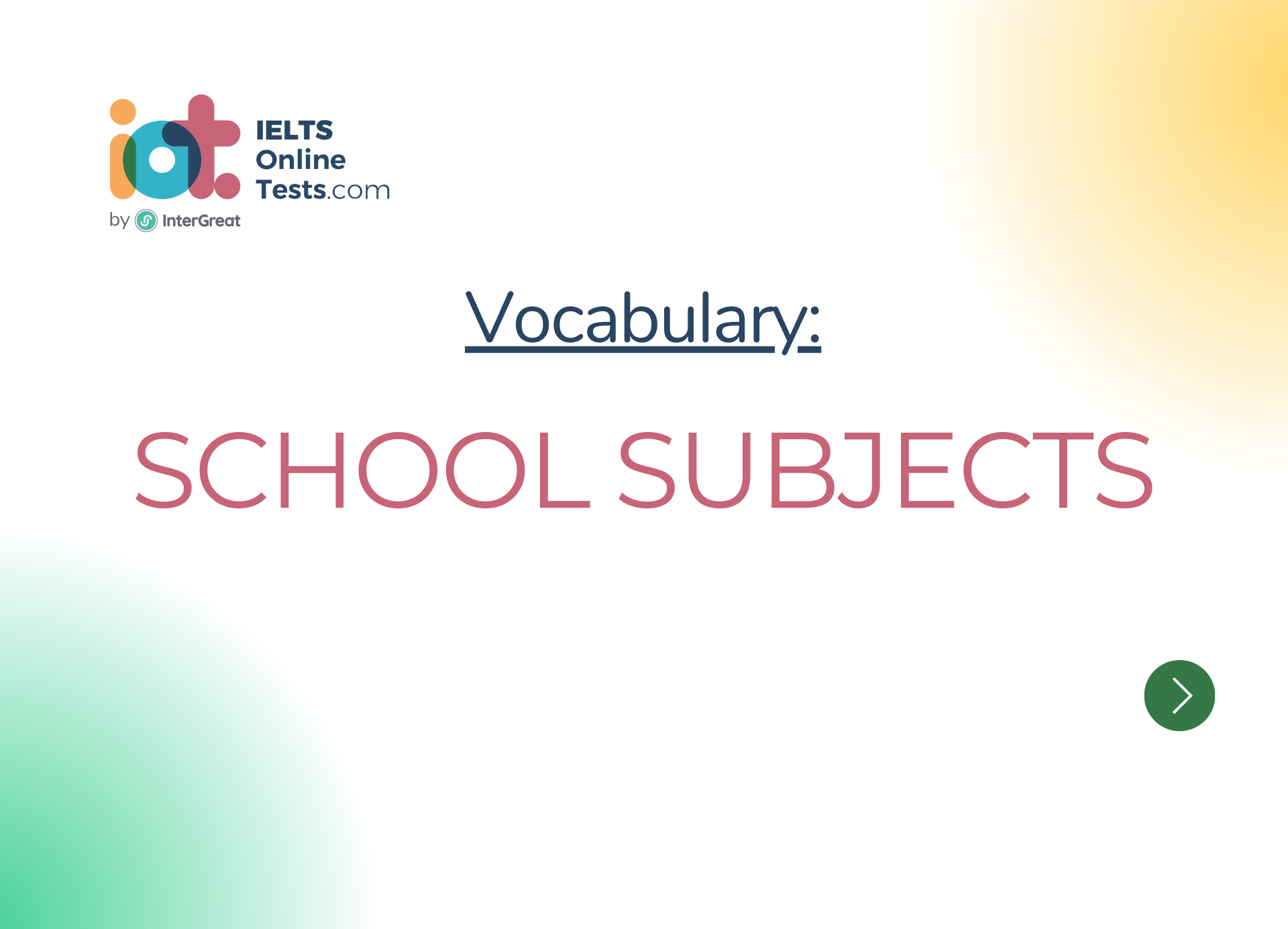
School subjects
Here's a lesson on vocabulary related to "School Subjects" for the IELTS band score 3.0-4.5:
I. Language Subjects:
English: The study of the English language, including reading, writing, and communication skills.
Spanish: The study of the Spanish language, including grammar, vocabulary, and conversation.
French: The study of the French language, including pronunciation, grammar, and comprehension.
German: The study of the German language, including vocabulary, sentence structure, and cultural aspects.
Chinese: The study of the Chinese language, including characters, tones, and basic conversational skills.
Literature: The study of written works, such as novels, poetry, plays, and short stories.
II. Science Subjects:
Biology: The study of living organisms, including plants, animals, and human biology.
Chemistry: The study of matter, its properties, composition, and reactions.
Physics: The study of energy, forces, motion, and the properties of matter.
Astronomy: The study of celestial objects, such as planets, stars, galaxies, and the universe.
Environmental Science: The study of the environment, ecosystems, and human impact on the natural world.
III. Mathematics Subjects:
Algebra: The study of mathematical symbols and the rules for manipulating them.
Geometry: The study of shapes, angles, measurements, and spatial relationships.
Calculus: The study of change and motion through the concepts of derivatives and integrals.
Statistics: The study of collecting, analyzing, and interpreting data for decision-making.
Probability: The study of the likelihood of events occurring and the mathematical principles governing them.
IV. Social Studies Subjects:
History: The study of past events, societies, and civilizations.
Geography: The study of the Earth's physical features, climate, populations, and regions.
Economics: The study of production, distribution, and consumption of goods and services.
Government/Civics: The study of political systems, governance, and citizenship.
Sociology: The study of human society, social behavior, and the structures that shape it.
V. Arts and Humanities Subjects:
Art: The study of visual arts, including painting, drawing, sculpture, and art history.
Music: The study of musical theory, composition, performance, and the history of music.
Drama/Theater: The study of acting, theater production, and dramatic literature.
Philosophy: The study of fundamental questions about existence, knowledge, values, and ethics.
Religious Studies: The study of religious beliefs, practices, and the role of religion in society.
VI. Technology Subjects:
Computer Science: The study of computer systems, programming, and software development.
Information Technology (IT): The study of using technology to manage and process information.
Digital Media: The study of digital communication, multimedia production, and online platforms.
Web Design: The study of creating and maintaining websites using programming languages and design principles.
Robotics: The study of designing, building, and programming robots and automated systems.
VII. Physical Education Subjects:
Physical Education (PE): The study of physical fitness, sports, and overall health and well-being.
Athletics: The study of sports activities, including track and field, team sports, and individual sports.
Gymnastics: The study of physical exercises, flexibility, and coordination performed individually or in groups.
Dance: The study of different dance styles, techniques, and choreography.
Health Education: The study of personal health, nutrition, and healthy lifestyle choices.
Remember to practice using these vocabulary words in sentences and conversations to improve your understanding and fluency in English.




